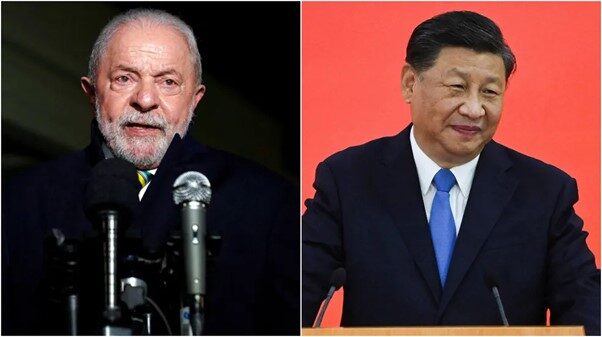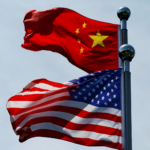
The president’s government Luiz Inácio Lula da Silva (PT) is in the final phase of negotiations on Brazil’s possible accession to the New Silk Road, a global infrastructure and trade initiative led by China.
The discussion has gained strength as Chinese President Xi Jinping’s visit to Brazil approaches, scheduled for November, after the G20 summit in Rio de Janeiro.
The Brazilian government’s objective is to prepare a strategic position, with special attention to preserving the national industry and obtaining favorable compensation for the country.
The Minister of the Civil House, Rui Costaleads a delegation that traveled to China last Sunday, the 13th, to deepen negotiations. The team’s mission is to define the critical details of an eventual agreement with the Chinese.
According to the government, adherence to Nova Rota da Seda is seen as an opportunity to finance projects in the New Growth Acceleration Program (PAC) and improve the competitiveness of the Brazilian economy.
Role of former president Dilma and defenders of the agreement
The former president Dilma Rousseffcurrently heading the New Development Bank (NDB)also known as the BRICS Bankhas been an important supporter of the agreement.
Her position at the NDB places Dilma in a strategic position in negotiations between Brazil and China, as the bank has been involved in large infrastructure projects in member countries.
At the same time, within the Brazilian government, voices such as the special advisor for international affairs, Celso Amorim, and Rui Costa himself argue that accession must be carefully planned to ensure that national interests are protected.
Amorim emphasizes that the agreement with China does not imply a departure from other global partnerships. He suggests that joining the New Silk Road could actually strengthen Brazil’s relations with Western powers in strategic sectors such as healthcare, satellites and semiconductors.
Government caution and expectations for Xi Jinping’s visit
In August, during an event at National Confederation of Industry (CNI)the president Lula was clear in stating that Brazil will not close its eyes to the opportunities that the Chinese initiative offers. However, he highlighted that the government will seek agreements that bring concrete benefits to the country.
“We will discuss. We are not going to close our eyes, no. We’re going to say, ‘What do you have for us? What do I gain?’”, stated Lula.
The government has been cautious in negotiations and avoids making official announcements before ensuring that all the details of the possible agreement are adjusted.
The expectation is that, by the time Xi Jinping arrives in Brazil, the government will have consolidated a clear strategy to deal with the New Silk Road. The Chinese leader’s visit is seen as a crucial opportunity to strengthen ties between the two countries, especially at a time of growing political fragmentation in Latin America.
Challenges for the national industry and internal pressures
Although the government sees the Chinese project as an opportunity, there are concerns within the Brazilian industrial sector.
The president of Instituto Aço Brasil, Marco Polo de Mello Lopes, highlighted the “huge concern” with the possibility that a possible agreement would increase inequalities in trade relations between Brazil and China.
For the sector, it is essential that domestic production is protected, preventing opening to the Chinese market from harming the competitiveness of the national industry.
The government’s economic team also shares these concerns and wants to ensure that the agreement includes mechanisms that protect local industry. Among the measures under discussion are the transfer of technology and incentives for trade in products with higher added value.
The objective is to prevent Brazil from becoming just an exporter of commodities, seeking to develop sectors with greater industrial and technological complexity.
The New Silk Road and the global context
The New Silk Road, officially known as the Belt and Road Initiative (BRI), has already moved around $2 trillion in international contracts, encompassing the construction of infrastructures such as ports, highways e railways in several countries.
To date, Brazil is one of the few countries in Latin America that has not yet joined the project. During Lula’s visit to Beijing earlier this year, there were expectations that the agreement would be signed, but the decision was postponed, reflecting internal caution.
Furthermore, the Brazilian government assesses that joining the New Silk Road could open doors for new investments in infrastructure, helping to boost economic growth through international partnerships.
However, the government is also aware of the possible political and economic repercussions of closer alignment with China, at a time of global trade tensions and geopolitical rearrangements.
Next Steps
Lula’s government continues to evaluate the benefits and risks of joining the New Silk Road. Negotiations remain ongoing, and the expectation is that Brazil will be able to announce its official decision during Xi Jinping’s visit in November.
Until then, the government seeks to consolidate a strategy that leverages the opportunities offered by the Chinese initiative without compromising the Brazilian economy and industry.
Source: https://www.ocafezinho.com/2024/10/18/lula-manda-ministro-a-china-para-negociar-entrada-do-brasil-na-nova-rota-da-seda/

